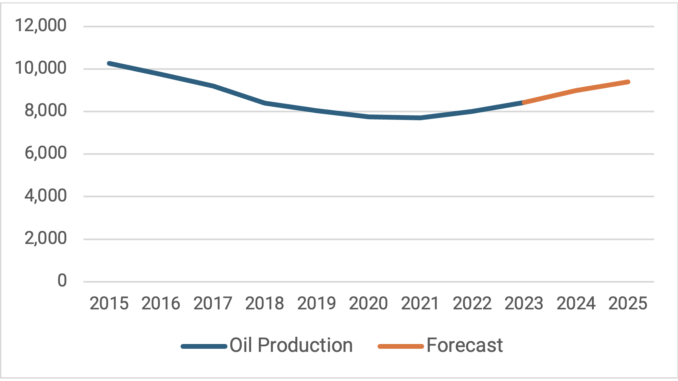
NEWS UP-DATE: Hydrocarbon Production as Key to Global………

ergy security, given its vast reserves and strategic position in the energy market. The region boasts significant oil and natural gas resources, with countries like Venezuela, Brazil, Mexico, and Argentina holding some of the largest proven reserves worldwide. This potential, coupled with growing energy demands and geopolitical uncertainties, underscores the critical importance of Latin America as a stable and reliable supplier of hydrocarbons.
Key Players in Hydrocarbon Production
Venezuela possesses the world’s largest oil reserves, though production has declined due to economic and political challenges. However, global interest in revitalizing the country’s energy sector could reestablish its position as a top producer. Brazil, home to substantial offshore oil fields, continues to attract investment in its pre-salt basins, offering consistent growth in crude oil exports. Meanwhile, Mexico’s energy reforms have encouraged private investment in its oil and gas sectors, though political shifts have introduced some uncertainty. Argentina, with its Vaca Muerta shale formation, is emerging as a major player in unconventional oil and gas production.
Strategic Contributions to Energy Security
Latin America’s hydrocarbons enhance global energy security by diversifying supply chains and reducing over-reliance on politically volatile regions. For instance, its proximity to the United States and Europe facilitates efficient transport, particularly of liquefied natural gas (LNG). Moreover, the region’s natural gas production addresses rising global demand for cleaner energy sources, as gas is seen as a transitional fuel in the shift to renewable energy.
Challenges and Opportunities
While Latin America’s hydrocarbon sector holds immense potential, challenges such as political instability, regulatory hurdles, and environmental concerns persist. Investments in infrastructure and technology are crucial to unlocking untapped reserves sustainably. International collaboration and policy reforms could drive greater efficiency and environmental stewardship, enabling Latin America to balance energy production with climate goals.
The Global Outlook
As the energy landscape evolves, Latin America’s hydrocarbons remain indispensable. The region’s vast reserves and strategic geographic advantages make it a cornerstone of global energy security. By addressing internal challenges and leveraging international partnerships, Latin America can solidify its role as a key energy supplier while contributing to the stability of global markets.
Leave a Reply